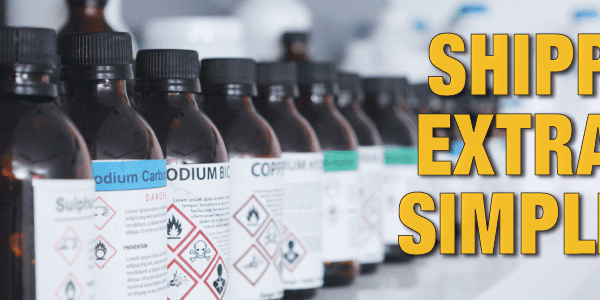Shipping Alkaline Batteries, IBC Pressure Gauges, and SDS Expiry Under WHMIS 2015
Welcome back to the Regulatory Helpdesk where we answer your dangerous goods & hazmat questions. We’re here to help you become independent with – and understand the whys and hows – of the regulations.
Shipping Spent Alkaline Batteries (49 CFR)
- Q. Can spent alkaline batteries (Duracell) be shipped to a recycling facility by ground without being declared dangerous goods?
- A. Assuming that these are dry alkaline batteries that are used or spent for recycling, they are not required to be shipped as dangerous goods by ground in the USA per 172.102 Provision 130 (d) provided they are rated under 9 volts per below.
Ground Transport (US DOT): 49 CFR 172.102 SPECIAL PROVISION 130
Used or spent battery exception. Used or spent dry batteries of both non-rechargeable and rechargeable designs, with a marked rating up to 9-volt that are combined in the same package and transported by highway or rail for recycling, reconditioning, or disposal are not subject to this special provision or any other requirement of the HMR.
Pressure Gauge Requirements for IBCs
- Q. What are the pressure gauge testing requirements for 31A IBCs?
- A. I referred the customer to 178.814 d (1) (2) which lists 2 consecutive tests that must be administered with a rating of 65kPa first followed by 200kPa.
Can You Use Capital Letters (TDG)?
- Q. Do you need to write the proper shipping name in capital letters on a dangerous goods shipping document for ground transport in Canada?
- A. As per TDG Part 1.3 (d) (ii) shipping names can be written in upper or lower case letters, except that when the shipping name is followed by the descriptive text associated with the shipping name the descriptive text must be in lower case letters and the shipping name must be in upper case letters.
Note: The descriptive text is just a description and not required to be written on a dangerous goods shipping document.
3-year SDS Expiry (WHMIS)
- Q. Is there still a 3-year expiry for SDS under WHMIS 2015?
- A. The short answer: The HPA/HPR (WHMIS 2015) no longer mandate a 3-year review/update.
The long answer: BC, however, under the provincial Workers Compensation Act, OHS Regulation §5.14 (re: WHMIS 2015) requires employers to ask suppliers if there is an updated version available when the one they have is 3 years old or more.*
Note that employers under federal jurisdiction (Canada Labour Code), NB, NT/NU, SK & YT all have a similar (perhaps different wording) employer requirement.
However, MB, ON, PEI & QC don’t require the 3 year “ask”- only update when aware.
And we’re still waiting on the updated AB, NL, & NS regulations.
*This was a specific requirement under § 29(2) of the (WHMIS 1988) CPR. The 3-year requirement will still apply to suppliers/workplaces using WHMIS 1988 material during the transition.
The supplier is not required to automatically update SDS unless new information is discovered since the federal regulation does not mention the requirement.
Here is the actual BC wording:
“5.14 Supplier SDS
(1) Subject to subsection (6), an employer who acquires a hazardous product for use, handling or storage at a workplace must obtain a supplier SDS in respect of that hazardous product that complies with the requirements of the Hazardous Products Regulations.
(2) When a supplier SDS obtained under subsection (1) for a hazardous product is 3 years old, the employer must obtain from the supplier an up-to-date supplier SDS in respect of any of that hazardous product in the workplace at that time.
(3) Subsection (2) does not apply if
(a) the employer has obtained written confirmation from the supplier that
(i) the SDS has not changed, or
(ii) the up-to-date supplier SDS does not apply to the hazardous product, or
(b) it is not practicable for the employer to obtain the up-to-date SDS or written confirmation under paragraph (a).
(4) If the employer is unable to obtain an SDS as required by subsection (2), the employer must add to the existing supplier SDS any significant new data or new hazard information applicable to that hazardous product that the employer is aware of, or ought reasonably to be aware of, on the basis of the ingredients disclosed in that document.
(5) The employer may provide at a workplace an SDS in a format different from the format provided by the supplier or containing additional hazard information if the SDS provided by the employer
(a) subject to section 5.18, contains no less content than the supplier SDS, and
(b) the supplier SDS is available at the workplace and the employer-provided SDS indicates that fact.
(6) If a supplier is exempted by the Hazardous Products Regulations from the requirement to provide an SDS for a hazardous product, the employer is exempt from the requirement to obtain and provide an SDS for that hazardous product.
[Enacted by B.C. Reg. 30/2015, effective August 4, 2015.]”





